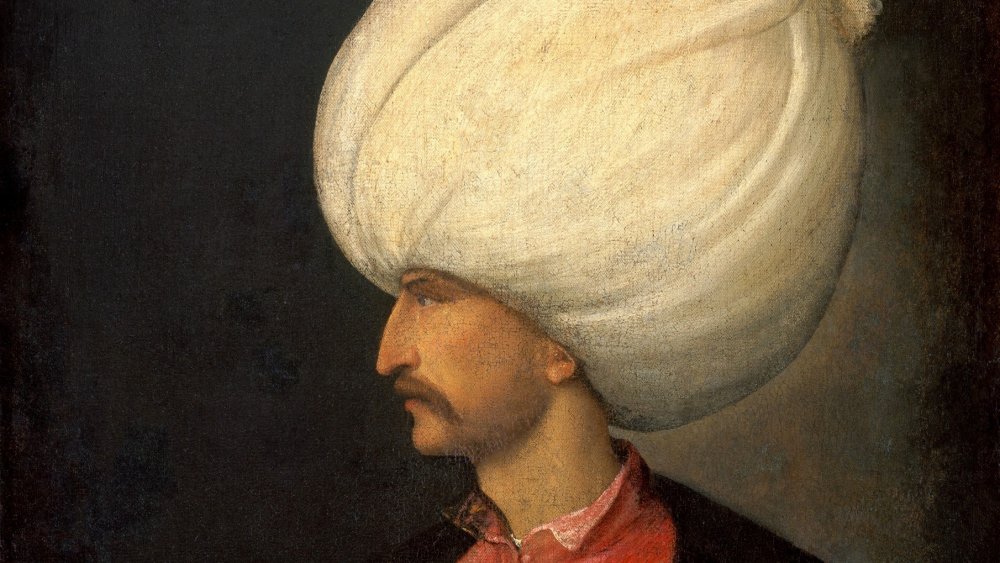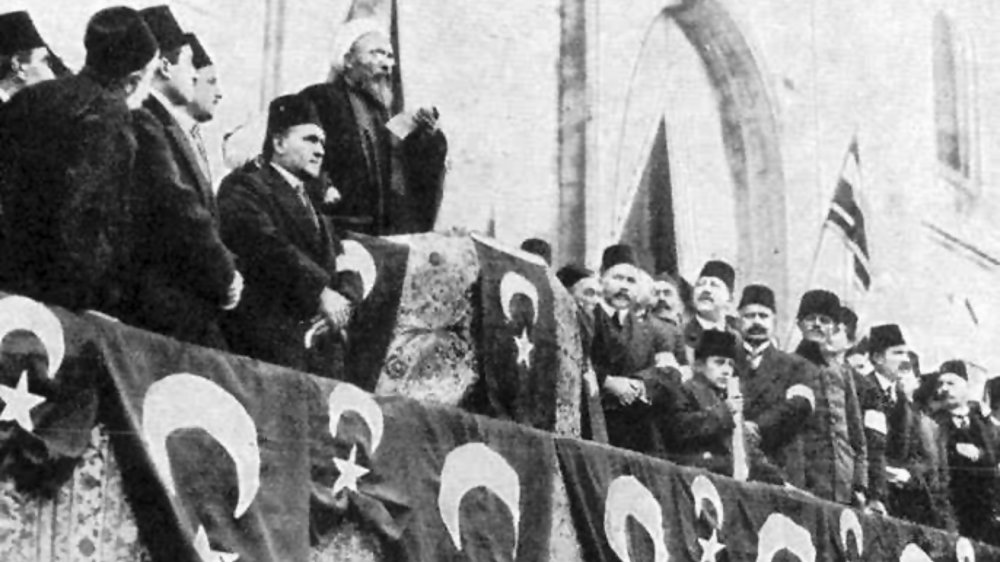We Now Understand Why The Ottoman Empire Crumbled
If high school world history lessons feel like ancient history to you, then the expression "sick man of Europe" might be little more than a faintly familiar collection of words accumulating dust and cobwebs in the farthest reaches of your haziest memories. But once upon a time those words were at the forefront of geopolitical discourse in Europe. That time was the mid-1850s, the age when nurse Florence Nightingale famously saved lives during the Crimean War, and the Charge of the Light Brigade infamously ended them.
Tsar Nicholas I of Russia is credited with coining the phrase "sick man of Europe" to refer to the declining Ottoman Empire. Though, as documented in The Rise and Fall of the Ottoman Empire, Nicholas actually said, "We have a sick man on our hands, a very sick man." How far the mighty had fallen. This erstwhile Turkish juggernaut had risen to power roughly five centuries earlier, per the University of Massachusetts Boston. The Ottoman Turks made conquest look easy, burning through Europe with such withering intensity that Christians waged Crusades against them in 1336, 1396, and 1440 yet failed to halt the inferno.
The Ottomans toppled the Byzantine Empire and vanquished Vlad the Impaler, whose honey-preserved head was sent to Sultan Mehmed II as a trophy which would adorn the gates of the conquered Constantinople. How did these once indomitable Ottomans fall so grievously ill as an empire?
A dereliction of duty for booty
According to Encyclopedia Britannica, in the 1500s, the Ottoman Empire reached the apex of its power and then began sliding into a slow-moving oblivion. Sultan Süleyman I the Magnificent grew weary of war and administrative duties and preferred to immerse himself in his harem. Responsibilities were increasingly delegated to the grand vizier, who held immense control over revenue and had the authority to "demand and obtain absolute obedience." In many respects, he became a stand-in for the sultan, sowing divisions that sapped the influence of the government.
The devşirme system, described by How Stuff Works as the practice of kidnapping Christian children in conquered lands and turning them into slave-soldiers and bureaucrats, became another nail in the Ottoman coffin. In the mid-1500s the devşirme overtook the Turkish nobility and came to power themselves. No longer pawns of the sultan, they imposed their will on the ruler and ushered in a system of nepotism and corruption. Sultans began bribing the grand vizier and devşirme and exploited infighting among the fractured factions that formed.
The Ottoman cookie crumbles
The 18th century saw a precipitous drop in Ottoman power, according to ThoughtCo. The previous few decades of the 1600s had been dominated by a string of wars with Russia, via Encyclopedia Britannica, and those conflicts persisted through the 1700s and 1800s. During the Crimean War, Russia, Britain, and France vied for influence in the Middle East and especially the Ottoman Empire, per the UK National Archives. Tsar Nicholas I saw an opportunity to put the "sick man of Europe" out of his misery and in 1853, Russia launched an assault on Ottoman forces. France and Britain entered the fray, engaging Russia in battle.
Uprisings rocked the Ottoman Empire in the late 1800s century, and the increasingly weakened sick man limped into the 20th century. During WWI, it backed the wrong horse, aligning itself with the Central Powers. History writes that the Ottoman Empire officially ended in 1922 when the title of sultan came to an end. So now we understand how the Ottoman cookie crumbled. It was also understood a long, long time ago, but it's understood now, too.


